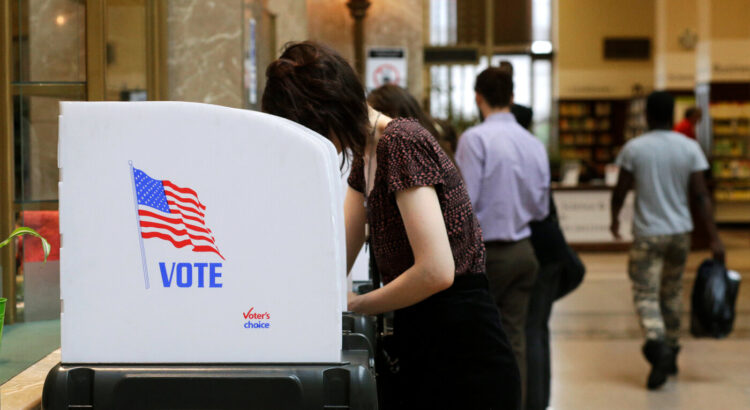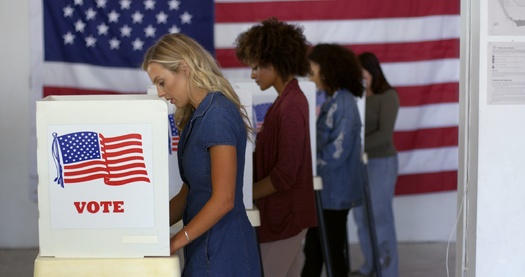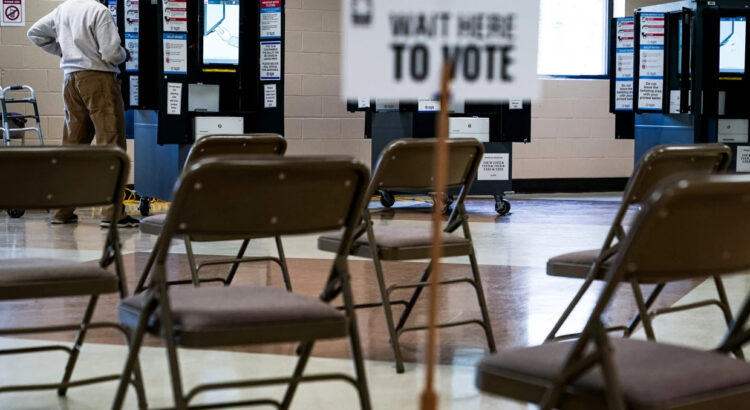The case is part of a nationwide strategy to sow doubt in the 2024 election ahead of November.
April 9, 2024
In Maryland, two election denial groups are exploiting the courts to help lay the groundwork to undermine the 2024 election. The effort, part of a string of challenges to voter rolls and election procedures by an expansive network of activists and organizations, injects distrust into our electoral process.
The groups, Maryland Election Integrity and United Sovereign Americans, filed a lawsuit in March falsely claiming that Maryland’s voter rolls are inaccurate, its voting systems are unreliable, and the Maryland Board of Elections has “lost control of the voting system.” This legal effort, and similar ones across the country, are intertwined with the election denial movement that has for years sought to disrupt the democratic process. These suits threaten to wreak havoc in 2024.
Among other things, the plaintiffs claim that Maryland’s election system is out of compliance with the National Voter Registration Act, a law that is designed to increase voter registration and includes safeguards to ensure eligible voters are not accidentally removed from the rolls.
Claiming tens of thousands of errors within a state’s voting system does not make it so. To push back against this faulty suit, last week the Brennan Center filed a friend-of-the-court brief in support of the Maryland State Board of Elections’ motion to dismiss. The brief argues that the suit’s claims are based on glaring methodological errors that leave the plaintiffs’ allegations without any basis in fact. It also highlights the dangers of suits like this one, designed to sow doubt in the integrity of the election system leading up to November. One of the plaintiff groups — United Sovereign Americans — has made clear that the Maryland lawsuit is part of a broader scheme, publicly stating that the group plans to file similar suits in at least 23 states on an “emergency basis.”
Under the National Voter Registration Act, states are required to make a “reasonable effort” to remove voters who have died or moved. The plaintiffs are relying on unsound statistical analysis to cast Maryland’s voter rolls as inflated with ineligible voters and call into question its entire election system. The groups have asked the court to block Maryland from administering or certifying any election until the alleged voter registration errors are remedied. However, these claims hinge on fundamentally flawed data analysis of the state’s voter rolls, and the groups bringing the lawsuit failed to meet the minimum legal requirements to show that the federal court has the authority to rule on their claims.
Other groups have already filed suits across the country demanding unwarranted voter purges. Last week, the Brennan Center filed a motion to intervene on behalf of the League of Women Voters of Michigan in a case brought by the Republican National Committee in Michigan. That lawsuit seeks to force the state to purge the voters rolls more aggressively, potentially putting eligible voters’ registrations at risk.
These lawsuits, riddled with misleading allegations, are nothing more than a smoke screen set up to confuse voters and lead to distrust in our elections. Creating unwarranted confusion and distrust was also a strategy around the 2020 vote, when lies and conspiracy theories shaped an entire movement aimed at overturning a legitimate election. It is precisely this distrust that has been fueling increased threats, harassment, and intimidation against elections officials. Election officials are already understaffed and overworked, and frivolous lawsuits like this strain election offices’ already limited resources, time, and taxpayer dollars.
This suit, and others based on similarly flawed claims, should be quickly and resoundingly rejected.


